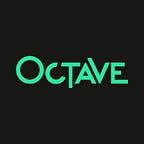Navigating the Transition: The Switch from Technical to Business-Focused
By Yumna Fazal — Business Intelligence Engineer
Let me preface this article by stating that my career so far, a 22-year-old graduate of six months, has been a rollercoaster of me ‘figuring it out’. Having completed my degree in Data Science and Business Analytics, I was sure I wanted to be in the field of analytics — however, the lingering question at the back of my mind was — how technical of a role did I want?
I started off with a six-month industry placement at Octave as a Data Science Intern in the retail stream, where, with the right mentorship, I was able to grasp a practical understanding of concepts I had only theoretically learned thus far; model development and evaluation, unit testing and featuring engineering among others. This foundation gave me a strong background in understanding the granular details of data science pipelines and how technical teams bring business requirements to life.
At the end of my internship, I came to the decision that I could use the coding skills I had mastered during my internship to apply it to the role of a Business Intelligence Engineer, where I worked on the frontend creation of dashboards while communicating its use to business and internal teams, as well as the creation of backend tables for the frontend developments. During the course of this stint, I was offered the ability to try out the role of an Analytics Delivery Associate due to the mix of technical and soft skills I had that were required for that job role.
I had always been interested in a client facing role, and the role of Analytics Delivery at Octave played perfectly in the balance I had always wanted, where I could use my technical skills to better assist and consult clients in their requirements. So, the question arises — how have my technical skills assisted me in adjusting to this new role, or has it all?
The role of Analytics Delivery at Octave has three levers by which it is characterized — analytics, stakeholder management and project management.
During my stints with technical roles, there were multiple transferrable skills I was able to gather which would become pillars in playing the part of ‘Analytics Delivery’. Technical roles require you to think in a highly analytical mindset, which now assist me in understanding business problems, identifying patterns and making informed decisions. Further, in a technical role, one would make data driven insights such as selecting models based on performance metrics or drilling down insights in dashboards to provide management with better understanding. Having this skill assists me in better translating these data driven insights into actional recommendations which fit into the business’ strategy and decision-making.
Alongside the transferrable skills, other skills I’m in the process of mastering at this point are business communication, project management and decision making. In an entry level technical role, you scarcely have the mindset of ‘How does this help the businesses, however with a business-focused role, the business’ needs and value generation are at the forefront of decision-making. Therefore, alongside problem solving and resolution, comes informed decision making and strategic planning.
To sum up, to anyone looking to make a similar shift, I conclude with the key learnings from my journey at Octave so far:
· Always understand business context
· Build a diverse skill set
· Learning to communicate technical concepts to non-technical stakeholders
· Focus on business impact
· Learn the art of story telling
· Effective time management
